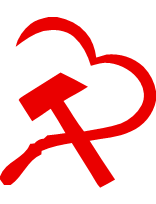A good example of this in action is detailed in a book called “how the workers’ parliaments saved the Cuban Revolution”, by Pedro Ross.
That sounds like a fascinating book! I’ve always been interested in the nitty gritty of how the Cuban democratic process works, and this book seems accessible and is just under 200 pages (not including the appendices/bibliography) so I might actually get through it.
Rather than a dry, aseptic description of the Cuban institutions and form of government, the book reads as a historical account of the process that took place in the years of the Periodo Especial.
The second half of the book, for some reason, is a recount of the Cuban revolution and its historical causes, which you may or may not skip reading depending on what your purpose is with the book.
That sounds like a fascinating book! I’ve always been interested in the nitty gritty of how the Cuban democratic process works, and this book seems accessible and is just under 200 pages (not including the appendices/bibliography) so I might actually get through it.
Here’s a temporary download if anyone wants to grab it (it’s also just on libgen if you prefer to find it yourself)
Thanks for posting the link!
Rather than a dry, aseptic description of the Cuban institutions and form of government, the book reads as a historical account of the process that took place in the years of the Periodo Especial.
The second half of the book, for some reason, is a recount of the Cuban revolution and its historical causes, which you may or may not skip reading depending on what your purpose is with the book.
Thanks for providing a link!